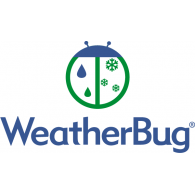
Earth Networks, the makers of WeatherBug, recently announced exciting new statistics about a pilot program designed to help homeowners save on their energy bills. WeatherBug is a popular local weather website, allowing users to track local weather patterns and receive updates on their phones, tablets, and computers via the WeatherBug apps and browser extensions. The pilot program, called WeatherBug Home, was tested in homes across Texas last summer.
The results from the pilot program show that WeatherBug Home helped homeowners lower monthly energy bills by 5% over the test group, with 4% directly attributable to thermostat optimization. The evaluation demonstrates the untapped energy efficiency power of connected thermostats and the potential for delivering energy efficiency by leveraging smart meter data.
With WeatherBug Home, homeowners set their own thermostat setpoints. WeatherBug Home then harnesses big data to intelligently and automatically optimize heating, ventilation and air conditioning (HVAC) – the source of about 50% of home energy use – based on the weather to reduce energy consumption while maintaining the homeowner’s comfort settings.
WeatherBug Home uses real-time, high-resolution local data from the WeatherBug network using key weather variables – including solar insolence, wind speed and direction, humidity, and temperature – that are critical to accurately model homes within energy management and demand response programs. Combined with smart meter interval data and the power of connected, two-way thermostats, WeatherBug Home lets homeowners optimize energy use, maintain comfort and save money.
Dave Olerholzer, Director of Energy Products & Business Development at Earth Networks - WeatherBug, will be speaking at this year's Smart Energy Summit, taking place February 17-19. Bringing together utility leaders, smart home vendors, and equipment manufacturers from across North America, the Smart Energy Summit provides key insights into the state of the home energy management and smart home markets. Registration information can be found at the Smart Energy Summit website.
For more information on WeatherBug Home, click here.

